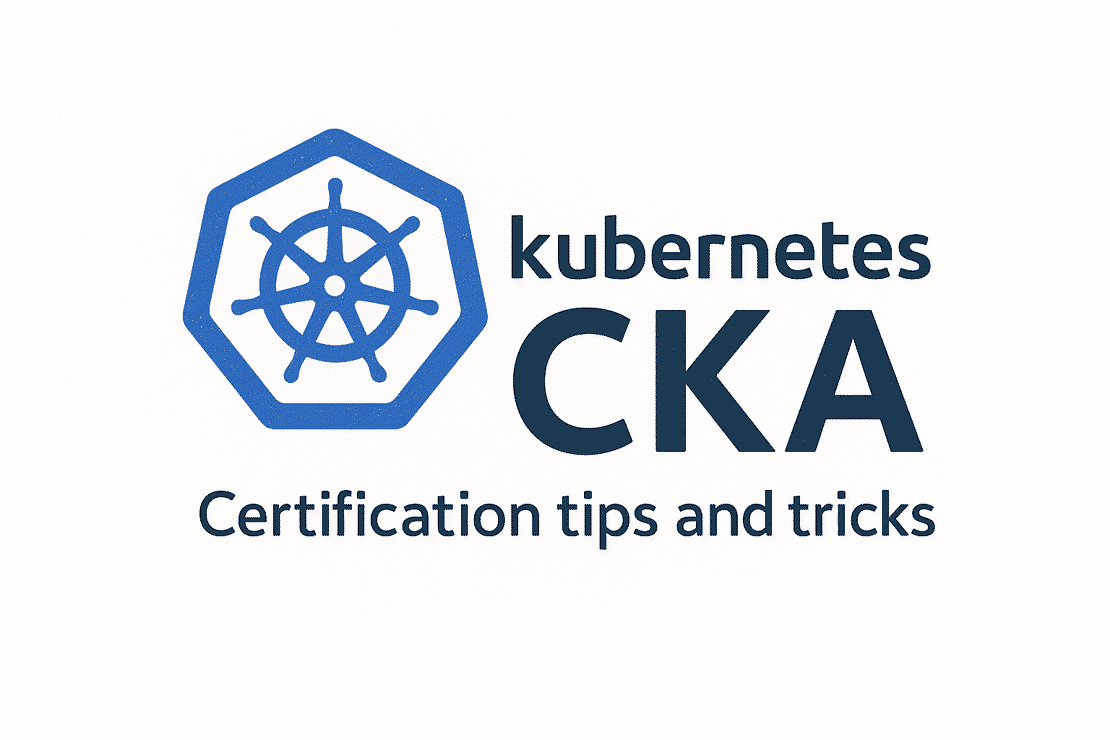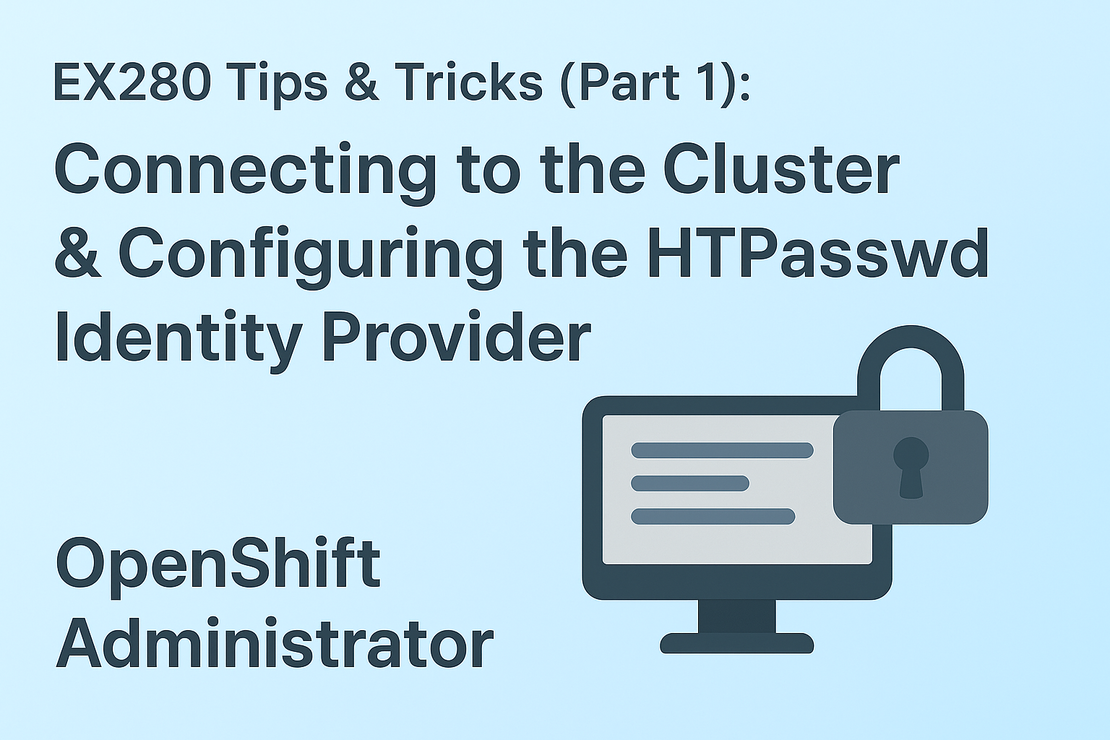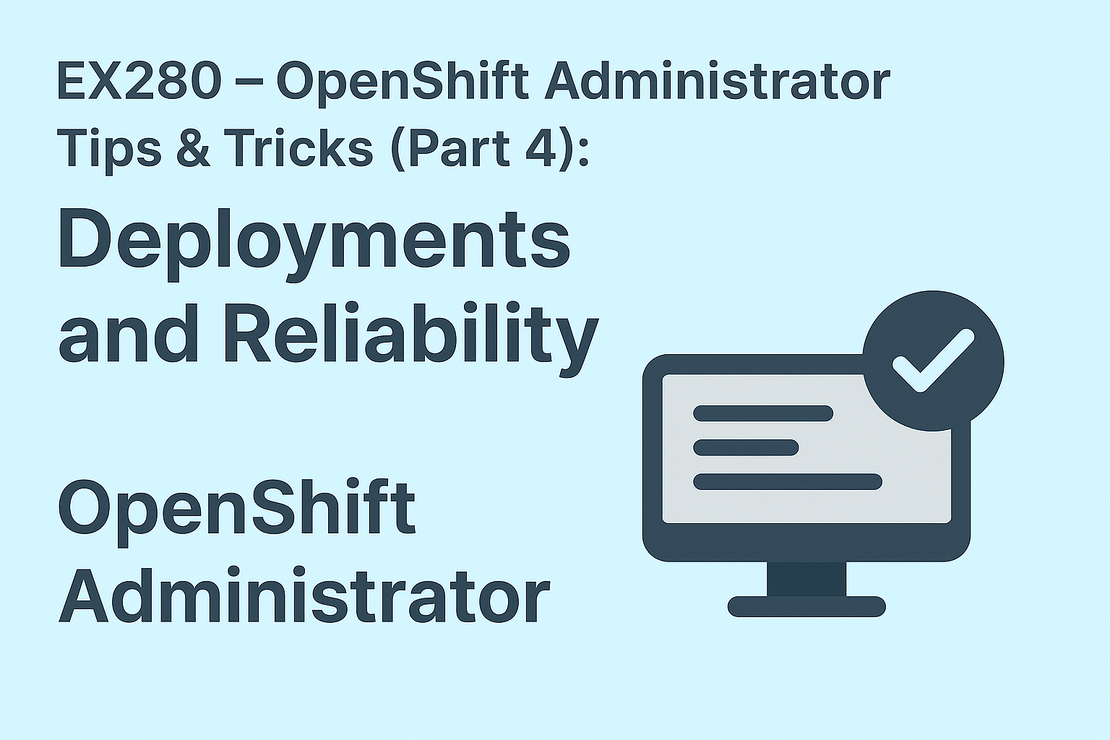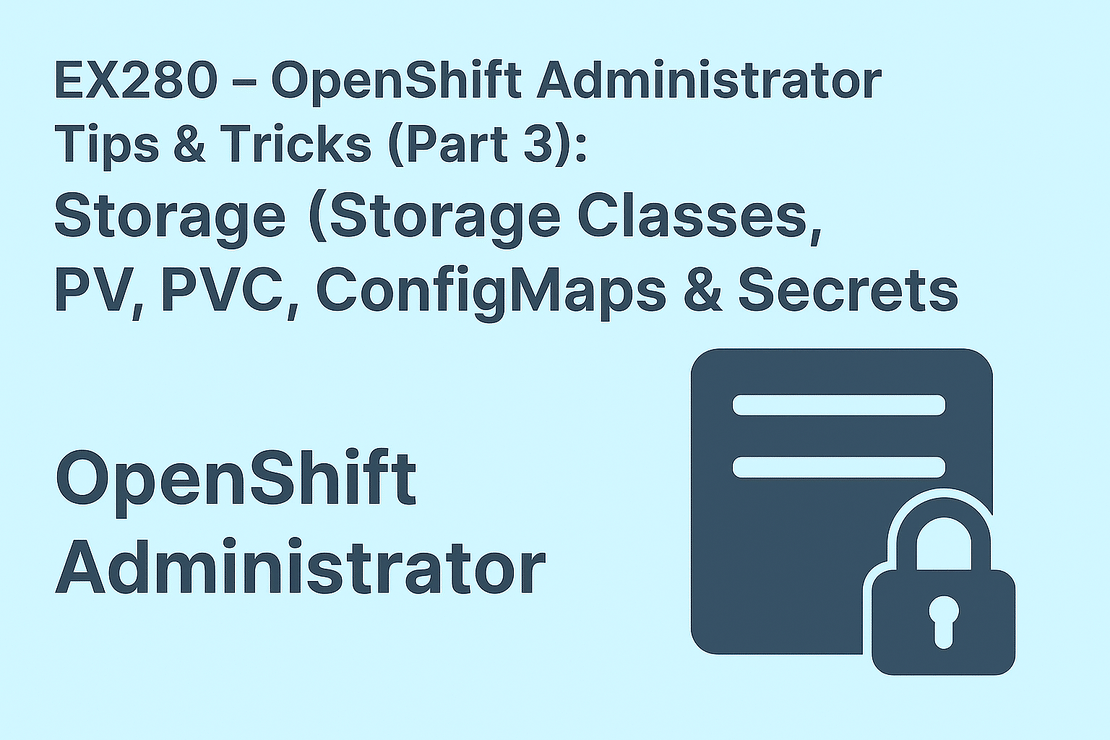
CKA Exam Readiness: The Definitive Self-Assessment Checklist
- tharun-vempati
- Kubernetes , Cka
- August 13, 2025
Table of Contents
Does this sound familiar? You schedule your CKA exam, then as the date approaches, anxiety kicks in. “Am I really prepared? Maybe I need another 10 days…” So you reschedule. Ten days later, the same doubts return, and the cycle continues.
I’ve been there. This frustrating loop of uncertainty can be broken with a clear understanding of what “exam readiness” actually means.
This blog isn’t just another Kubernetes tutorial. It’s a readiness assessment based on 16 real-world topics that mirror what you’ll face in the CKA exam. Consider it a final checklist to determine if you’re truly prepared or need more focused practice.
As prerequisites, you should already:
- Understand Kubernetes cluster architecture
- Have followed comprehensive guides like Kode kloud CKA course
- Have hands-on experience with Kubernetes
But knowing concepts and being exam-ready are different things. Let’s determine where you stand.
Self-Assessment: Are You Ready?
Before diving into the topics, ask yourself these questions. Be honest—your certification success depends on it.
Basic Readiness
- Do I understand Kubernetes cluster architecture and how components interact?
- Am I comfortable working with Services (especially NodePort) and Deployments?
- Can I create and manage basic resources using kubectl and YAML manifests?
Intermediate Readiness
- Do I know how to configure Horizontal Pod Autoscaling?
- Have I configured TLS for services before?
- Do I understand why we need Ingress controllers and how to set them up?
- Can I manage resources for multi-container pods with sidecars/init containers?
- Have I used Helm to manage Kubernetes applications before?
Advanced Readiness
- Have I troubleshoot kubernetes cluster components before?
- Am I comfortable configuring storage (PV, PVC, StorageClasses)?
- Can I configure and install CNI in a kubernetes cluster?
- Have I worked with NetworkPolicies to secure pod communication?
The Simple Rule: If your answer is “no” to even one of these questions, you’re not ready for the exam yet. Focus your remaining preparation time on those specific areas.
All 16 topics that test these skills can be found in my GitHub repository, where I’ve created hands-on exercises for each concept you’ll encounter in the exam.
The Readiness Verdict
After reviewing the 16 topics in my GitHub repository, assess your readiness:
- Ready to Proceed: Comfortable with all topics → You likely have the necessary hands-on experience
- Almost Ready: Struggled with some topics → Focus on those specific areas; don’t reschedule yet
- Need More Time: Multiple unfamiliar topics → Create a specific preparation schedule with clear milestones
Breaking the Rescheduling Cycle
The endless cycle of rescheduling often stems from a lack of clear benchmarks for readiness. Use this checklist to make an objective assessment:
- Can you complete practice exercises for all 16 topics without consulting solutions?
- Can you troubleshoot when things go wrong?
- Are you comfortable navigating the Kubernetes documentation to find information quickly?
- Can you complete most tasks within time constraints (typically 5-7 minutes per task)?
If you answered “yes” to all of these, stop rescheduling. You’re ready. Perfect readiness doesn’t exist—there will always be more to learn. Trust your preparation and take the exam.
Final Preparation Tips
In your final days before the exam:
Practice time management: The CKA is time-constrained. Practice completing tasks efficiently.
Master kubectl commands: Become fluent with the commands you’ll use frequently.
Create bookmarks in documentation: Prepare a strategy for quickly finding information.
Practice reading and modifying YAML: Many exam tasks involve modifying existing manifests.
Simulate exam conditions: Practice in an environment similar to the exam setup.
Rest and recharge: Mental freshness is as important as technical knowledge.
Exam-Day Tips and Tricks for Time Management
Time management is the most critical factor in the CKA exam. Here are some invaluable tips that can save you precious minutes:
1. Pre-map Documentation Resources
Golden Rule: Never search for topics you’re confident will appear in the exam without preparation.
Before the exam, identify topics you’re certain will be tested (like PV/PVC, NetworkPolicies, etc.) and:
- Practice finding the example manifests in the Kubernetes documentation
- Memorize which search result contains the example you need (e.g., “for PVC, it’s the second link”)
- Remember the specific location pattern (e.g., “when I search for ’network policy’, the example manifest is in the first link”)
This approach might seem trivial, but it can save 3-5 minutes per question—potentially 30+ minutes across the entire exam! I didn’t follow this method in my first attempt and lost valuable time navigating documentation.
2. Quick Namespace Switching
Set up a browser tab with this command ready to modify and execute:
kubectl config set-context --current --namespace=<namespace>
When a new question specifies a different namespace, quickly switch to this tab, update the namespace name, and execute it. This is faster than typing the command from scratch each time or constantly adding -n namespace to every kubectl command.
3. Master Search Techniques
Practice these search techniques that will help you work faster:
- Use
grepeffectively to filter command outputs:kubectl get pods -A | grep nginx - When editing files with vi, use
:/search_termto quickly find text - Combine commands with pipes to filter and format output efficiently
4. Skip and Return Strategy
Don’t get stuck on difficult questions:
- Give yourself a strict time limit for each question (e.g., 5-7 minutes)
- If you can’t make progress within that time, flag the question and move on
- Return to challenging questions after completing the easier ones
- Sometimes solutions become clearer after working through other questions
My CKA Exam Experience: A Tale of Two Attempts
When registering for the CKA exam, you get two attempts—a safety net I ended up needing. Here’s how my journey from failure to success unfolded, and the valuable lessons I learned along the way.
The First Attempt: A Humbling Experience
Like many candidates, I had read countless tips and tricks before my first attempt. But knowing advice and following it are two different things.
I expected questions on Ingress and other common topics, yet when they appeared, I still spent 3-4 precious minutes searching through documentation links to find the correct YAML templates. This seemingly small inefficiency added up quickly.
After the first hour—half my allotted time—I had completed just 5 questions. The fifth question involved resource management for a multi-container deployment. I misinterpreted the requirements, changing both resource limits and requests when I should have only modified the requests. This mistake cost me even more time.
By the two-hour mark, I had managed to complete 12 questions and was working on the 13th (migrating Ingress to Gateway API). I had just created the Gateway resource when the timer hit zero.
Result: 61% — not enough to pass.
I sat there staring at my screen, not disappointed in my knowledge, but in my execution. The realization hit me: what prevented me from passing wasn’t a lack of technical skills, but poor time management.
The Week Between: Strategic Recalibration
I took just one week to address my time management issues through rigorous practice with a new approach:
I categorized expected tasks into two groups:
- Tasks requiring YAML examples from documentation (Ingress, NetworkPolicies, etc.)
- Tasks that could be handled through direct editing (sidecars, resource management)
I practiced locating and memorizing exactly where to find YAML examples for common tasks
I drilled myself on quick command execution and rapid troubleshooting
The Second Attempt: A Strategic Victory
On my second attempt, I entered with a clear battle plan:
First hour strategy: Tackle all tasks requiring documentation lookups first, leaving the editing-heavy tasks for later. For each task on my “expected list,” I recalled exactly where to find the template rather than searching on the fly.
Result? By the end of the first hour, I had completed 11 tasks, skipping only two that required detailed editing rather than reference materials.
Second hour approach: In just 15 more minutes, I finished all remaining tasks except the troubleshooting challenge and my two flagged tasks.
With 45 minutes remaining, I tackled the troubleshooting task first, spending about 12 minutes correcting an incorrect IP address in the kube-apiserver static pod manifest. When I couldn’t get the pods running after a reasonable effort, I made a strategic decision to move on rather than sink more time into it.
I then completed my two flagged questions correctly and finished the exam with time to spare.
Result: 84% — a comfortable pass!
The Difference-Maker
What changed between my two attempts wasn’t my Kubernetes knowledge—it was my approach to time management and documentation use. By pre-mapping my resources and strategically prioritizing questions, I transformed a failing score into a successful certification.
The most valuable lesson? In the CKA exam, knowing where to find information quickly is just as important as knowing Kubernetes itself.
Conclusion: The Decision Point
This blog has presented a self-assessment framework to determine your readiness for the CKA exam. The 16 key topics referenced in my GitHub repository collectively represent the skills tested in the exam. If you’ve worked through those exercises and feel confident, congratulations—you’re ready to face the exam.
If the self-assessment questions revealed gaps in your knowledge, that’s valuable information. Rather than falling into the trap of endless rescheduling, use these insights to create a focused study plan with a definite endpoint.
Remember: The goal isn’t perfect knowledge of all things Kubernetes—it’s practical competence in administering Kubernetes clusters. The self-assessment questions and the hands-on exercises in the GitHub repository serve as your measuring stick. If you can handle them, you can handle the exam.
The next time you feel the urge to reschedule, return to this assessment. Let it be your objective guide to readiness, breaking the cycle of doubt and helping you move forward with confidence.
Your CKA journey doesn’t need to be endless. Assess, prepare, and when ready—take the leap.
This blog post is based on my preparation for the CKA exam using practical exercises from my GitHub repository. The repository contains hands-on tasks for each of these 16 topics to help you practice and assess your readiness. Use them as your final exam simulator before the real thing.


